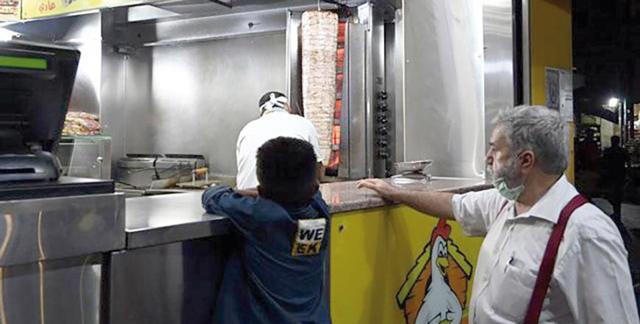You are here
Restaurants struggle to make ends meet amid rise in global food prices — stakeholder
By Rayya Al Muheisen - Sep 27,2021 - Last updated at Sep 27,2021
AMMAN — The Jordanian Union of Restaurants and Confectionary Proprietors (URCP) is demanding to increase menu prices from 5 to 10 per cent due to the global increase in food prices.
Omar Awad, URCP president, told The Jordan Times that “over 2000 restaurants have been forced to shut down since 2020 and hopes of a quick economic recovery are fading”.
Awad added that inflation is now hitting small restaurant owners, leading many restaurants to shut down due to a lack of consumer demand.
While global food prices have increased for consumers and businesses, local restaurant menu prices have not increased, according to Awad.
Awad said that most restaurant owners are not making ends meet. As a restaurant owner, Awad said that he purchases food at the increased inflation price and sells it to consumers at a pre-inflation rate.
He added that restaurant owners cannot continue to bear this extra cost.
“Over 250,000 employees work at 20,000 local restaurants,” Awad said.
Although local restaurants are exempt from paying sales tax, many local restaurant owners are applying for a tourist restaurant licence because tourist restaurants have flexible menu pricing without a price cap, Awad highlighted.
The cost of running a restaurant is on the rise as owners add new safety measures and food costs skyrocket. Few restaurants will make anything close to pre-pandemic sales, Awad said.
“People see an increase in prices of meat at the grocery store, but they don’t see oil prices, they don›t see glove prices and no one wants to hear that your burger is an extra dinar because gloves cost more money,” restaurant owner Ali Barakat told The Jordan Times.
Former restaurant owner Alia Asfour told The Jordan Times: “The economic toll on the local restaurant industry has not been evenly distributed. Restaurants that provide delivery service have maintained or even increased sales during the pandemic, while casual-dining restaurants have seen their revenues decline.”
The actions that restaurants need to take to cater to new dining needs, such as providing masks and gloves at the entrance, in addition to sanitary detergents that have to be available on each table, are an additional cost the restaurants are having to handle, according to Barakat.
Related Articles
AMMAN — A considerable number of restaurant owners and operators are about to close their businesses amid the rising costs of goods, accordi
AMMAN — The holy month of Ramadan is an opportunity for the local restaurant industry to rethink their service delivery operations that matc
AMMAN — Restaurant closures have become a regular occurrence in Amman, “necessitating real solutions”, said Omar Awad, president of the Jord


















